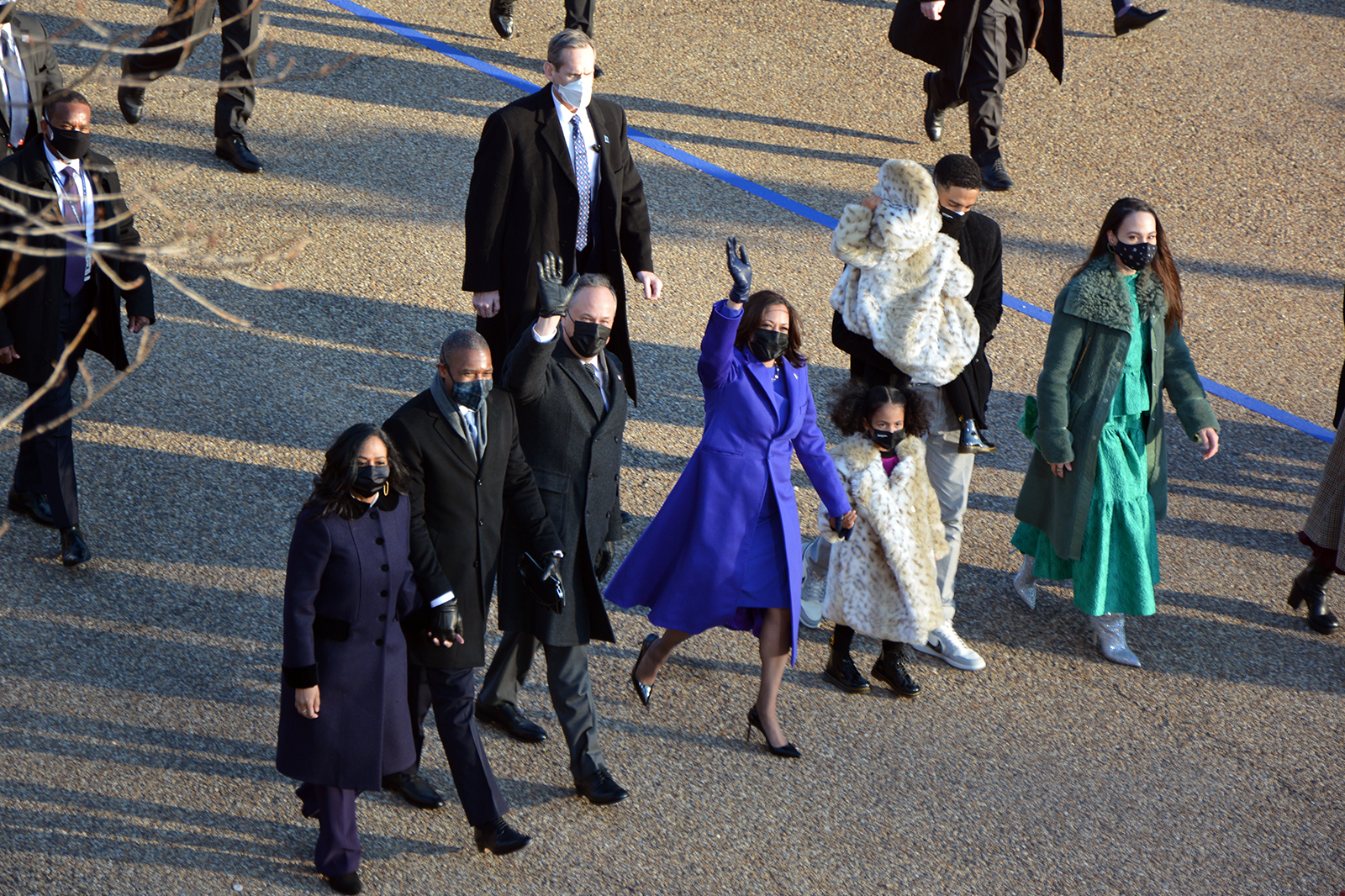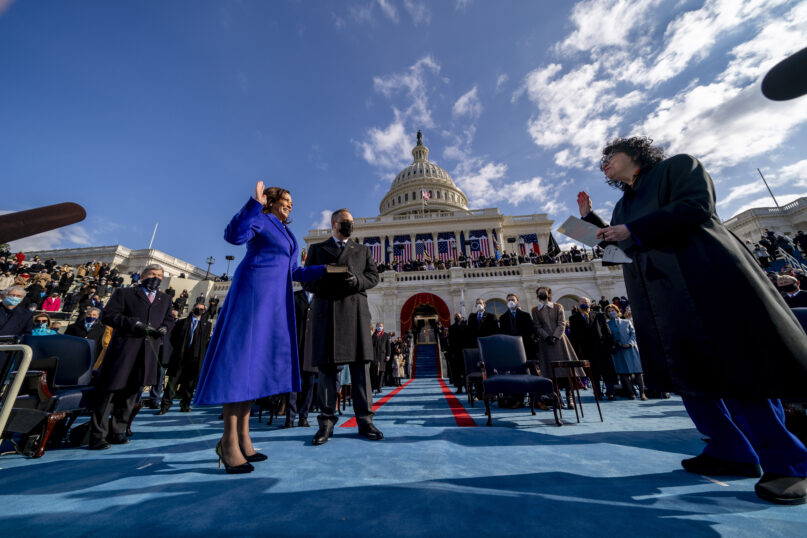(RNS) — Decades ago, an interfaith couple like Vice President Kamala Harris and second gentleman Doug Emhoff was rarely very religious. In America today, that’s no longer the case. Members of contemporary interfaith couples often embrace their own faith and their partner’s with love and authenticity.
From what we can tell, Harris and Emhoff’s lives are not about ignoring, diluting or subtracting faith but about adding, growing and even combining their beliefs and traditions. A Jewish friend in New Jersey described to me how meaningful it was to see a recent video of Harris singing Hanukkah songs with her husband, and the affection with which she mimicked her mother-in-law’s New Jersey Jewish accent.
Harris, whose father was Jamaican and her mother Indian, identifies as a Christian, specifically a Baptist. She is a member of a multiethnic congregation. She has also been exposed to Hinduism throughout her life. But while Harris represents a significant departure for the vice presidency, the way she connects with several family faiths is not uncommon today. Millions of Americans identify with one faith while being married to a spouse of a different faith. Millions more engage with religions beyond their own.
Importantly, Harris does not regard her connections to Hinduism — even the way her family prays for her — as being inconsistent with her Christian faith. During one of her campaigns for attorney general in California, Harris asked her Hindu family to perform rituals and prayers. Her aunt, Sarala Gopalan, broke 108 coconuts, a symbol with many auspicious meanings in Hinduism — doing so at a temple in Chennai that Harris was familiar with from visits with family.
In the America that Harris, Emhoff and their families represent, people can embrace and be steadfast in their own faith, be part of their own religious community and still engage with others. The way we live religion — make it part of our lives and identities — is so much more complex than any holy text could contain or express.
Harris is a symbol of America’s future, but also its present. Pew estimates that about 1 in 5 families are blended racially or religiously (although Pew includes Protestant-Catholic couples in that figure). Forming families like that means discovering this truth: Engaging with another faith doesn’t diminish your own.

Vice President Kamala Harris, center, and her husband, Doug Emhoff, and family walk in front of the White House during a presidential escort to the White House, Jan. 20, 2021, in Washington. RNS photo by Jack Jenkins
At a community level, religious groups are making the same discovery.
A few years ago, about 10 Indian American Hindu and Sikh families in Wayne, New Jersey, began gathering regularly to perform seva (service) by packing meals for homeless shelters in the area. As neighbors heard about the efforts and other families joined, including non-Indians, a larger space was needed to gather.
Through one volunteer’s connections, the seva group connected with the minister of the town’s Presbyterian church. When he heard about the project and how the group was struggling with finding a space to accommodate everyone, the Rev. Andrew Smith offered up the church space. He put the announcement out to his congregation and members showed up to join the still-expanding monthly effort.
Smith could have shied away from the seva group because of its members’ religious identities or the fact that they were performing service as a form of religious obligation. But he didn’t. He could have helped quietly, but instead he put out the call to his congregants to live out Jesus’ message of charity alongside their Sikh, Hindu and other neighbors.
I can think of no better repudiation of the Jan. 6 insurrection at the U.S. Capitol than this story. If some white Christian Americans feel their stranglehold on national identity slipping away, if their version of “great again” harks back to some misty ethnic purity of the 1940s and ’50s, they are misdefining American greatness.
RELATED: How Kamala Harris delivers on 150 years of Black women’s political history
Those decades were a time when doors were shut to immigrant families like mine, Harris’ — and, for that matter, the second gentleman’s too. They were a time when Black Americans endured segregation and lack of opportunity, and women’s professional opportunities were confined by tradition.
True American greatness emerges from the connections that Harris embodies, and from the call that she and President Joe Biden expressed at the inauguration: to repent of division, to serve one another and to embrace all our faiths for the ways they can bring us together.
As vice president, Kamala Devi Harris and her story will mean different things, and resonate differently, for different groups of people — and for more communities — than any of her predecessors. Her very presence, and her emergence on the national stage over the past decade, says a particularly great deal about our multireligious America. It also promises to show us all how that America lives.
(Khyati Y. Joshi is a professor at Fairleigh Dickinson University and the author of “White Christian Privilege: The Illusion of Religious Equality in America.” The views expressed in this commentary do not necessarily reflect those of Religion News Service.)






